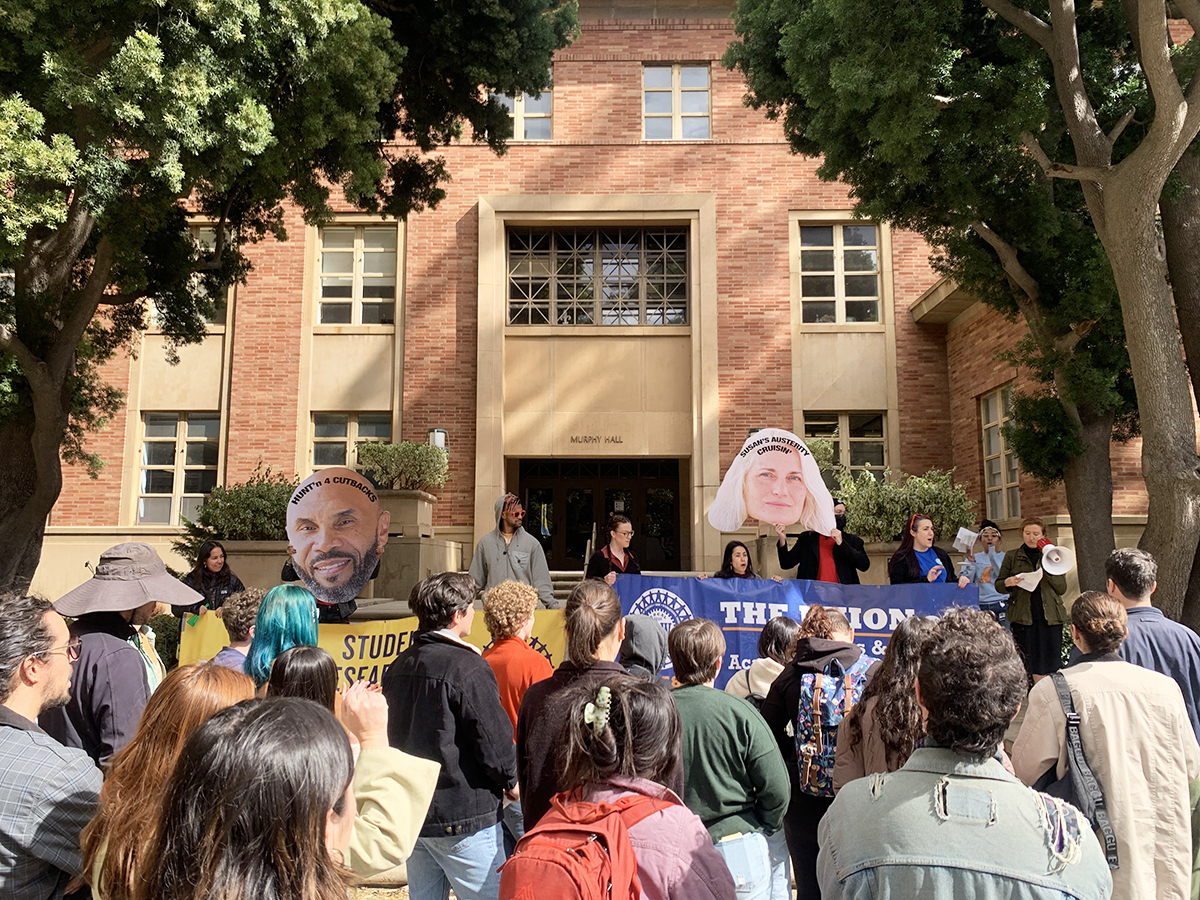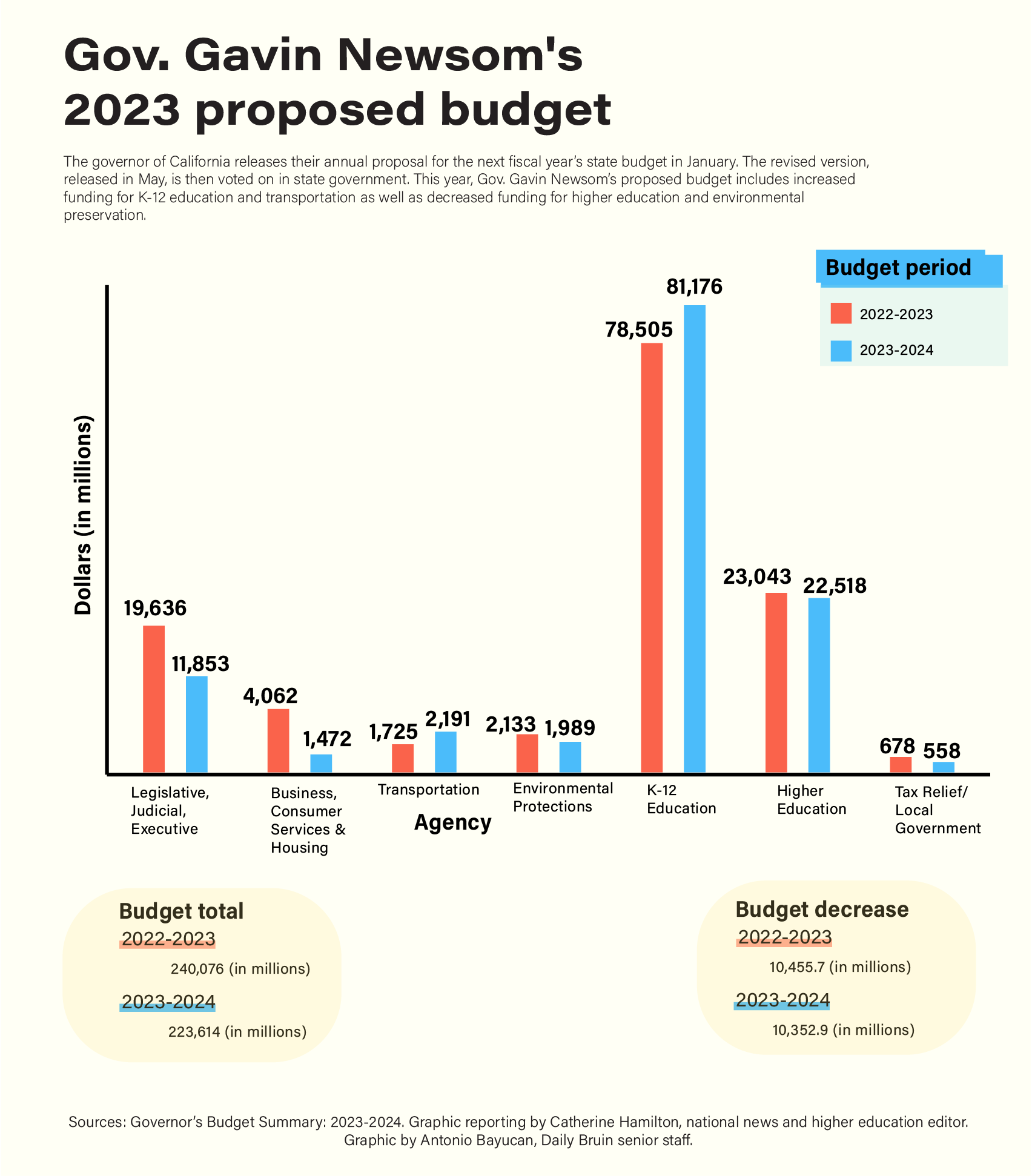UC graduate student admissions cut threatens quality of education


By Karina Seth
April 16, 2023 9:00 p.m.
Graduate students are the backbone of American higher education programs. Teaching assistants grade homework and exams, read essays, and lead discussion sections designed to enrich learning and create a smaller classroom setting.
The recent strike by over 48,000 United Auto Workers union members across the UC system granted graduate students wage increases and other benefits such as childcare and anti-harassment stipulations. While this marks one of the largest wage increases in history for UC graduate students, some reports suggest that the UC plans to cut graduate admissions by up to 33%.
The UC system is ironically choosing to overwork its graduates instead of addressing the systemic issue at hand of continuously undervaluing its employees. This unequivocally overturns the efforts of the UAW and hurts undergraduate students by decreasing the number of TAs available to them. The UC is subverting the spirit of this contract to protect its finances, harming its students in the process.
“What it all boils down to is the UC not wanting to fairly and effectively implement the contract that we won,” said Jacqueline Perez, a graduate student in psychology. “It’s (the grad student enrollment cuts are) going to be incredibly disorienting and deterring for prospective students.”
Perez added that the psychology graduate department has admitted one-third fewer students for the upcoming academic year.
As they attempt to find funding to implement their new contract with UAW, the UC may be heading toward significant budget deficits. California is facing a projected $22.5 million deficit, so funding options from the state are limited. Many faculty are worried that the costs of the new contract will be borne by them, leading over 380 faculty members at UCLA to sign a petition outlining their refusal to take the burden of the UC’s rising costs.
Cutting back on graduate enrollment will place both graduate and undergraduate students at risk of a poorer quality education. On top of that, it is hard to imagine that the UC’s campuses will be able to continue the same volume and quality of research they are known for.
“(There would be) decreased productivity in the class or just make it more difficult to really nail in the material,” said fourth-year sociology student Kaylee Johnson. “They (TAs) just literally could not be as available.”
Fewer TAs would lead to larger discussion sections, essentially reversing the entire purpose of the sections. This depersonalizes education for undergraduates and lessens TAs’ ability to cater to each of their students’ learning and assignments.
These changes come at a time when the UC has recently announced it will be expanding undergraduate and graduate enrollment by 2027. The UC claims to want to expand admissions, but cutting graduate admissions now is clearly a step in the wrong direction.
The question remains of how piles of extra work will be divided between current graduate students, and how undergraduates will be able to easily access TA resources essential to their education. In a large undergraduate population of over 31,000 students, a decrease in TA availability and quality will cause harm and result in less individualized learning.
UCLA recently assembled a new committee called the Joint Administrative and Academic Senate Task Force on the Future of Graduate Education, which aims to release its report on future plans by the end of the upcoming fall quarter.
While this is a commendable effort, the late publication will affect the admissions of the next academic year, harming upcoming students in the 2023-2024 school year.
“We have encouraged departments to be conservative until the task force we have in place to examine this issue has made its recommendations,” said Ricardo Vazquez, director of media relations, in an emailed statement.
Vazquez also said a funding pool put together for researchers and graduate students is meant to help with the transition.
This fund supports principal investigators in research labs and departments to mitigate the need for increased funding.
While it’s true that there must be a transition period in which UC must determine how to reallocate money, the burden should not fall on students. For already overburdened faculty, a greater workload will only deteriorate the quality of education the UC promises.
As long as the UC continues to treat its graduate students unfairly, the entire student body will suffer.





